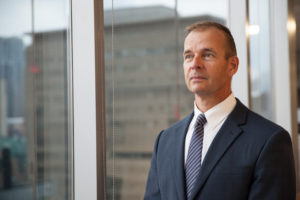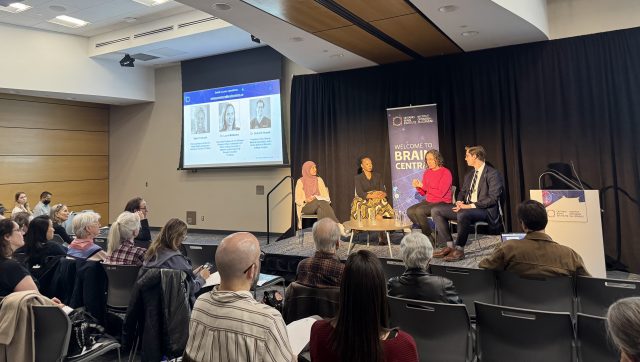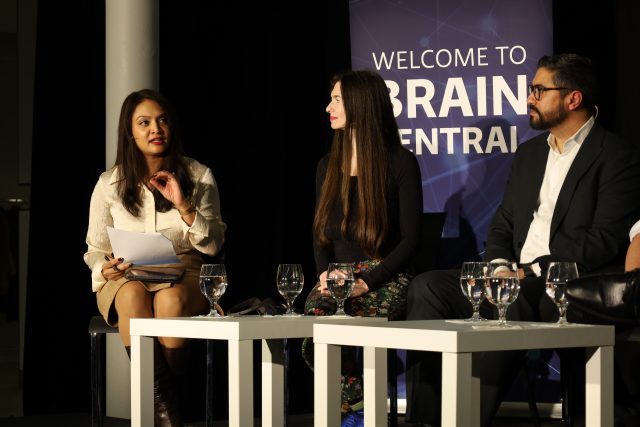
When we think of healthcare, nurses,doctors, hospitals, and informal caregivers likely come to mind. And rightly so, given the tremendous role they play, especially when the health need is urgent – and an especially stark reminder through our current healthcare crisis. Often overlooked is the care provided to people outside of the formal healthcare system, the care they receive from their community.
Community care is distinct from healthcare, although it is similarly concerned with the health and wellness of people. Instead of providing care in a medical or clinical setting, people are given care vie the knowledge, support, advocacy, or access to programs designed to help them live their best lives. By design, community care is closer to home, accessible, and personal.
Who makes up this community? Advocacy groups like Autism Ontario and their chapters across the province, service providers like community epilepsy agencies, peer-support networks like the Mood Disorders Association of Ontario, and grassroots movements that come together to provide programs that fill gaps in the continuum of care. Community care is an extension of healthcare. When linked together, the net positive impact is enormous, by way of a connected system of care with comprehensive wrap-around services to support every Ontarian.
Take the First Link program of the Alzheimer’s Society of Ontario (ASO) as an example. In this program, a representative from the ASO is embedded in a hospital emergency room or memory clinic to provide a person newly diagnosed with dementia or mild cognitive impairment with a direct link to the care offered by the community. In the absence of this program, an individual and their caregiver might be at a loss for what to do after receiving the life-changing news of a diagnosis. Instead, they are connected to their local ASO chapter and their knowledgeable staff to help answer questions, navigate the complex healthcare system, as well as a network of peers who can offer support and programs created to help maintain their quality of life and wellness.
This is just one example of many that exist within the brain health community. The brain is a complex but fragile organ – a stroke near birth can lead to cerebral palsy; inherited genomic variations during development can cause neurodevelopmental disorders like autism; a blow to the head as a teenager can result in a concussion; or the accumulation of toxic proteins can lead to a neurodegenerative disease like Alzheimer’s.
Early diagnosis and interventions can help improve outcomes in many cases, but brain disorders, like other chronic conditions may also require life-long care. Unlike other chronic conditions like diabetes or heart disease, most brain disorders do not have effective, well-established treatments in place yet. And for that reason, individuals may require lifelong care which extends beyond traditional healthcare settings and into the much less appreciated community care setting.
OBI’s approach to brain health recognizes the important role of the community into the care continuum and actively integrates it into our research, commercialization, and outreach efforts. If we are to improve brain health, we must use all avenues and resources to allow a person living with a disorder thrive.
We include community partners as members of the patient advisory committees for our research programs to actively bring new evidence to people in the community setting; the OBI-GEEK program funds community-led organizations to spread, scale and evaluate their programs and services; community focus group help early stage companies develop their products; we engage with Indigenous communities and bring the expertise to support their efforts to build resilience and capacity in their communities.
Community based initiatives not only help reduce the burden on the healthcare system but simultaneously helps build capacity by addressing a crucial gap on a community level where care can be local, accessible, and perhaps more personal. Similar to the unprecedented support offered by the community to the most vulnerable members of society – a simple check-in to make sure they have what they need, especially in this time of social distancing.
We believe it’s important to view the community as a key piece of the system of care for individuals. To improve the lives of those living with brain disorders, we need to broaden our definition of care by recognizing and elevating the critical role played by the community, especially for the one out of every three individuals who will be impacted by a brain disorder in their lifetime.


